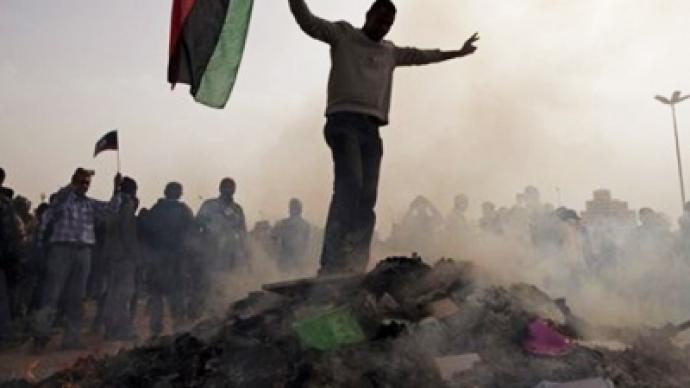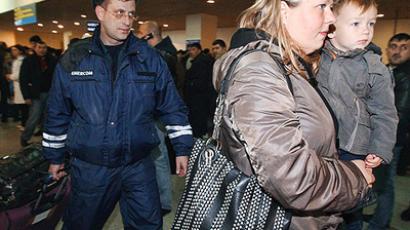Far-reaching effects of Arab world unrest

The unrest in Northern Africa and across the Middle East may have wide repercussions for the rest of the world, especially if NATO members such as the US and the UK resort to using force in Libya.
Geographically, Libya, Tunisia, Algeria and Egypt – and these are just some of the countries, affected by civil unrest – are just across the sea from Europe.An estimated 140,000 people have already fled from the unrest in Libya into neighboring Tunisia and Egypt. However, it is unlikely they will stay there as Italy has already received as many as 10,000 refugees and more continue pouring into the country. France, Greece and Spain may be next in line.“Even before these uprisings the prospect of massive immigration has always been Europe’s worst nightmare. In real terms, it has never been substantial. We have always been below 30,000 possible entries every year,” said Fabrizio Tassinari from the Danish Institute for International Studies. “Clearly, the overthrow of the governments poses a whole different set of issues and what Europe will be able to do depends on the ability of actually coordinating between some of the governments that are most affected. Imagine if in two months’ time, Colonel Gaddafi is not overthrown. I mean, business cannot proceed as usual after this. Something will have to be done.” A look at the map of Libya in terms of oil production facilities shows that 80 per cent of the oil-producing territories are under rebel control.Europe consumes over 85 per cent of Libya’s crude exports. More than 30 per cent of Libyan oil goes to Italy, 14 per cent to Germany, 10 per cent to China and France and 5 per cent to the United States.The unrest has already provoked a spike in oil prices which climbed to over US $100 per barrel – the highest point in two years. And this, some analysts say, is just the beginning.“Oil prices have a knock-on effect on cost of most items, because you need energy to make products and deliver them to shops,” said financial adviser and wealth expert Marco Pietropoli.“If oil prices continue to stay high, that will have a significant impact on inflation in Europe and the world.” Finally, if a civil war breaks out in Libya, with the country breaking apart, geopolitical implications for the region and for the world cannot be underestimated.“The major peril now is the radical Islamists coming into power all over the region. You know, these revolutions in Egypt, in Syria, in Tunisia, all over the Arab states, they have not been Islamic yet,” says political analyst Igor Khokhlov. “You can see that many radical Islamist parties which have been suppressed by previous regimes like Muslim Brotherhood in Egypt, for instance, and al-Qaeda which is very strong in Libya – you know, the Libyan department of al-Qaeda is one of the strongest in the world, maybe the second strongest after the Pakistani one – so one of the greatest dangers now is that al-Qaeda and other Jihadist networks try to make use of the situation.”














